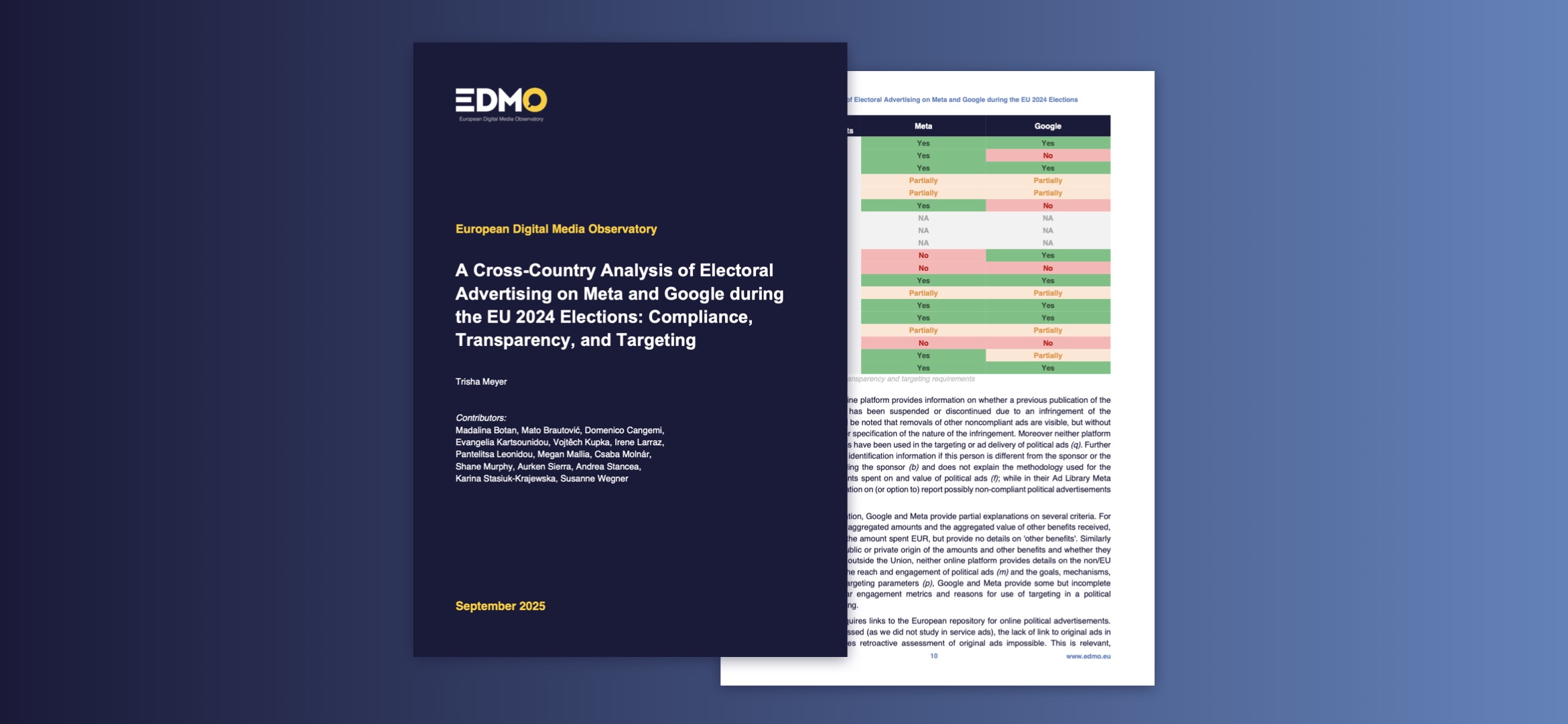
This report discusses the results of a comparative study on political advertising during the 2024 EU elections. EDMO BELUX led and authored this collaborative effort of ten EDMO hubs, covering electoral advertising in fifteen EU countries. On the one hand, the report analyses compliance and transparency of two Very Large Online Platforms and Search Engines (VLOPSEs) — Meta and Google — on commitments made on political advertising in the context of the Code of Practice (as of July 2025, Code of Conduct) on Disinformation. On the other hand, it assesses use, spending and targeting by political parties during the run up to the European Parliament elections in June 2024.
In particular, we provide a comparison of the definitions of political ads in the EU, and assess the VLOPSEs’ compliance with the transparency and targeting requirements as laid out in Reg(EU)2024/900. Further, we test access to political ad data through Google and Meta’s advertising libraries and Meta’s advertising API, and analyse how political parties in fifteen countries elected to the European Parliament made use of political advertising and targeting on Meta and Google in the period leading up to the EU elections (April – June 2024).
We conclude that Meta and Google’s definitions on political advertising are not fully aligned with Reg(EU)2024/900 and they only partially fulfil transparency and targeting requirements. Further, while political ads can be retrieved through Google and Meta’s ad services, data cleaning and prepping were resource intensive. Finally, in total, 30.000 ads were published and € 8.7 million was spent in political advertising during the EU2024 elections in the fifteen countries included in the study. We found that ad targeting was commonly used, but often in a rather general manner. This analysis sheds light on the recent decisions of both Meta and Google to withdraw their political ad services in the EU, and the widely differing use, spend and targeting of political advertising by political parties during election periods.
Read more here.



